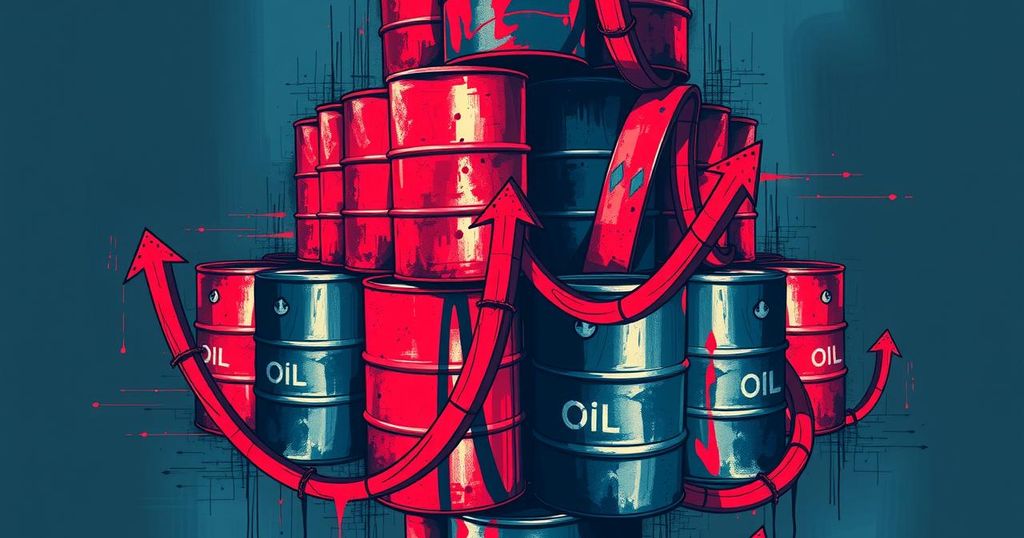Trump’s Tariff Threats on Russian Oil: Implications for Global Markets

Donald Trump threatens to impose secondary tariffs on Russian oil if Ukraine conflict worsens, impacting India and China. In an NBC interview, Trump expressed his frustration with Putin and indicated that tariffs of 25-50% could follow if a ceasefire is not achieved. This decision poses a dilemma for nations reliant on Russian oil, amidst an evolving global energy market.
Donald Trump has threatened to impose “secondary tariffs” on Russian oil amidst escalating tensions from the Ukraine conflict. This position indicates that if peace negotiations fail, countries like India and China, which have increasingly relied on Russian oil since the invasion began, could face severe economic repercussions. Trump emphasized in a recent NBC News interview that he would impose tariffs on all oil exports from Russia if no ceasefire is reached.
Trump expressed frustration with Vladimir Putin, particularly regarding suggestions for installing new leadership in Ukraine, stating, “New leadership in Ukraine means you’re not going to have a deal for a long time, right?” He indicated that if the situation does not improve, he would introduce tariffs that could range from 25% to 50% on oil purchased from Russia. This statement raises significant concerns about the impact on global energy markets, especially for major consumers like India and China.
The imposition of such tariffs would put India and China in a difficult position, as they have become substantial buyers of Russian oil following the conflict’s escalation. The potential tariffs may force these nations to decide between maintaining their oil supplies from Russia or accessing the U.S. market, resulting in a complex geopolitical challenge. The ramifications of the Russia-Ukraine conflict continue to evolve as recent developments, including a ceasefire agreement related to Black Sea operations, unfold.
The U.S. has recently facilitated a truce that requires cooperation from both Ukraine and Russia. However, the Kremlin has insisted on the removal of sanctions affecting Russian financial institutions involved in agriculture. This ongoing dynamic further complicates international relations and energy stability as countries navigate the conflict’s far-reaching implications.
Donald Trump’s threats of secondary tariffs on Russian oil highlight the increasing geopolitical tensions since the Ukraine conflict began. Countries such as India and China may find themselves at a crossroads, having to decide between Russian oil purchases or continued access to U.S. markets. These developments illustrate the interconnectedness of global energy markets and the potential consequences of sanctions in this geopolitical crisis.
Original Source: www.hindustantimes.com







